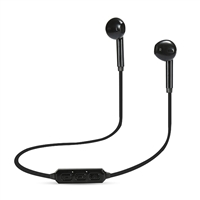
Choosing Quality Earphones: Is Frequency Response Important? Do earphones with a wider frequency range provide better sound quality? However, while these specifications may play a role in determining the sound quality produced by your earphones, you also need to consider that the actual frequency range also varies from one person to another and may even vary from one ear to another. As such, the best way to choose the best quality earphones is still to try them for yourself....
Are you looking to buy the best quality earphones available in the market today? If you are, then you may need to know a thing or two about earphone frequency response and its importance in choosing your earphones.
Earphone Frequency - Some Things You Absolutely Need to Know About It
What is Frequency Response?
Earphone frequency response can be technically defined as the speed of vibration of physical materials and is measured in terms of Hertz (Hz). It represents the most effective range by which the drivers can provide clear and uniform sound to the intended user.
What is the best frequency range for earphones and headphones?
You may notice that most headphones and earphones have a frequency range of 20 Hz to 20 KHz. This is considered to be the standard for most earphones since it represents the normal audible musical frequency range among humans.
Do earphones with a wider frequency range provide better sound quality?
While some earphone and headphone manufacturers stand by this claim, anything out of the normal range (20 Hz to 20 KHz) do not make the sound quality any better. Ultra-low and ultra-high frequencies are felt rather than heard.
Is this the most important thing you need to consider in buying high quality earphones?
Definitely not. You should also take the following into account:
1. Headphone or earphone specifications. Consider the impedance (the opposition to the flow of current), sensitivity (the ability of the earphone to convert an electrical signal into an acoustic signal) and clipping or maximum level (the level by which the audible signal starts to sound distorted).
2. Vibrating components
3. Magnetic movement
4. Physical and interior design
However, while these specifications may play a role in determining the sound quality produced by your earphones, you also need to consider that the actual frequency range also varies from one person to another and may even vary from one ear to another. As such, the best way to choose the best quality earphones is still to try them for yourself.
Customer Service
